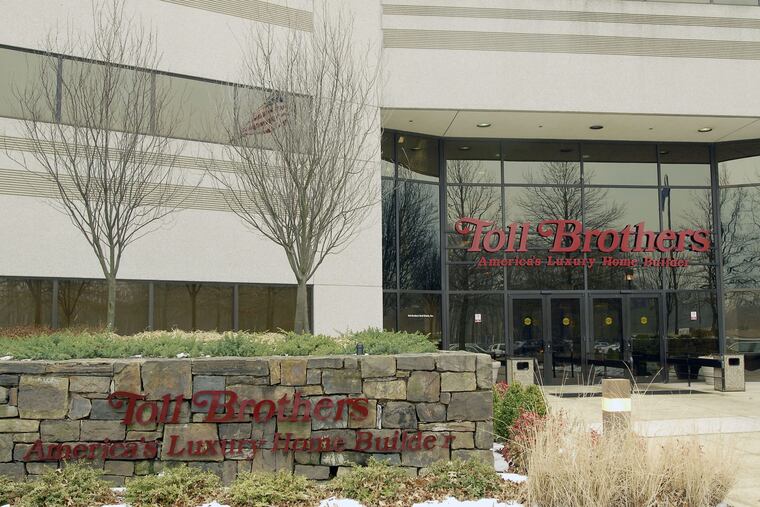Lawsuits from owners of water-damaged Toll Bros. houses can go forward, judges rule
The decision upheld previous ruling that the 30 homeowners did not have to submit to arbitration to seek compensation for damages from mold, rotting wood, and other water infiltration problems.

Owners of Toll Bros. houses who bought their properties from the original or a subsequent buyer and filed lawsuits alleging that shoddy construction caused water damage are not automatically subjected to mandatory arbitration, a panel of Pennsylvania Superior Court judges ruled Wednesday.
The appellate decision upheld Philadelphia Court of Common Pleas rulings that the owners of 30 houses did not have to submit to arbitration — as required by the original warranty.
In effect, the homeowners are now free to pursue their lawsuits seeking compensation for damages, such as mold, rotting wood, and other water infiltration problems that generally cost more than $100,000 to repair.
“We agree with the trial court that pursuant to the plain language of several portions of the warranty, the warranty did not automatically transfer to a subsequent purchaser,” Judge Mary P. Murray wrote. Judge Deborah A. Kunselman and Senior Judge Dan Pellegrini were also on the panel.
In order for the homeowners to be subject to mandatory arbitration, they would have had to sign a form that transferred the warranty to them. None of them did.
Toll, which is based in Horsham and is the nation’s largest publicly traded luxury-home builder, sold the 30 houses to the original buyers between October 2002 and January 2005.
Starting in the early 2000s, at least 27 different builders in Southeastern Pennsylvania sold houses that were plagued by leaks through stucco, around windows, and elsewhere, according to an Inquirer investigation published in November. Rushed production, under-trained workers, lower-quality materials, and lax oversight by builders and code inspectors had left more than 650 homeowners in at least 55 zip codes in houses damaged by water and requiring extensive repairs, the investigation found.
Toll did not immediately respond to a request for comment.
Stephen G. Yusem, a Blue Bell lawyer who works as an arbitrator and mediator, said Toll understandably wants to keep these complaints in arbitration and out of litigation.
“Litigation is far more expensive, far more time-consuming, and subject to all kinds of appeals and hassle. It’s public. This is bad publicity, whereas arbitration is more expeditious and more economical and more confidential than litigation,” Yusem said.
The Superior Court decision rested on the fact that arbitration is a function of contract. “You can’t involuntarily be ordered to go to arbitration out of the blue,” he said.
Yusem found one of Toll’s arguments, described in this week’s decision, particularly weak: "An original purchaser is ‘not likely’ to ‘search through [his] paperwork to find that exact form to give to subsequent purchasers to sign,’ and instead, ‘[i]t is more likely that this form has been misplaced or forgotten.’”
That’s not much different from saying someone shouldn’t be obligated by a contract because they didn’t read it before signing it, Yusem said.